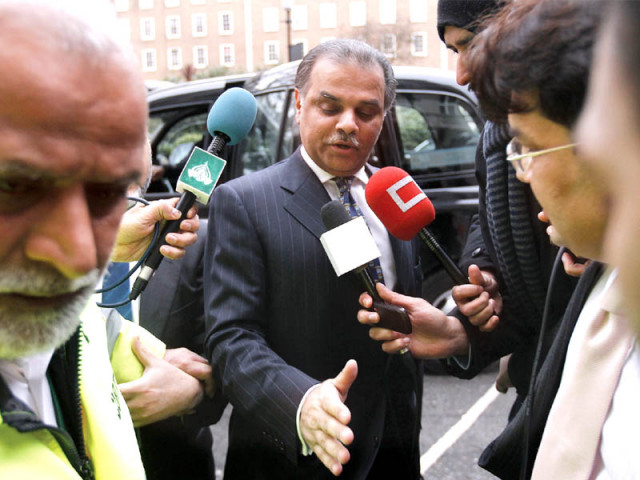Post US raid, coup threat was substantive: Ijaz
Says he obtained transcripts and records before proceeding with the memo on Haqqani’s request.

Post US raid, coup threat was substantive: Ijaz
Armed with transcripts and records, the self-proclaimed whistleblower in the Memogate scandal insisted that there was a real threat of a military coup in Pakistan after the Abbottabad raid on May 2, 2011.
The threat was based in fact, said Pakistani-origin American businessman Mansoor Ijaz during cross-examination in front of a judicial commission probing the scandal on Thursday.
Ijaz was asked to elaborate one of the messages he exchanged with former envoy to the United States Husain Haqqani on his BlackBerry.
He initially refused, citing fears that his US interests would be compromised.
“I am an American national and will safeguard the interests of my country,” he said.
Justice Isa, chairing the commission, said that since Ijaz had already shared this information with Haqqani, they could easily ask the former ambassador to reveal it.
That softened him up: “If you compel me, Sir, I am going to answer on the orders of the commission.”
After Haqqani approached him first, Ijaz said, he used his contacts with intelligence agencies of various countries to obtain documents, including travel records of Director-General Inter-Services Intelligence (ISI) chief Lt General Ahmad Shuja Pasha, minute-by-minute Pakistan Air traffic Control flight monitoring of US helicopters which infiltrated Pakistani airspace for the May 2 raid, and a transcript of a call between President Asif Ali Zardari and Army Chief General Ashfaq Parvez Kayani.
Convinced that plans for a coup were in motion, Ijaz said he proceeded to send the memo via General James Jones.
The authenticity of the transcript is established by the source, the method of transmission and the content of the transcript, he added.
When asked by the counsel to share the transcript, Ijaz said he would share the document only with the members of the commission in a sealed envelope.
Threats
“Did Haqqani and his friends threaten you Mansur?” the counsel asked, to which Ijaz said that Haqqani had once directly intimidated him, while his ‘friends’ have done so too.
When asked to name the friend, Ijaz pointed towards Interior Minister Rehman Malik’s threats of arrests if Ijaz were to come to Pakistan.
He said he had received death threats in Urdu, Arabic and English from anonymous sources by SMS, e-mail and phone calls.
These were translated into English by contacts in the US Federal Bureau of Investigations, Ijaz said.
Pressed to name other threat sources, Ijaz revealed that former US officials including Bruce Ridel, a former Central Intelligence Agency (CIA) official, scholar Christina Fair had used slanderous language against him.
“It is my belief that these statements were purported by Husain Haqqani” Ijaz alleged.
The hearing was adjourned at this point until Friday (today).
Decade-long ‘friendship’
Cross questioned over his relationship with Haqqani, Ijaz said that he and the former ambassador shared a decade-long friendship.
To a question about the May 2 raid, Ijaz said that he first sent a BlackBerry message to Haqqani on May 3 because he had written an article on the raid in Financial Times.
“I agree with your FT piece, just can’t say it publicly, let us work in tandem to save the situation,” Ijaz quoted Haqqani as replying to the message.
Published in The Express Tribune, March 2nd, 2012.



















COMMENTS
Comments are moderated and generally will be posted if they are on-topic and not abusive.
For more information, please see our Comments FAQ